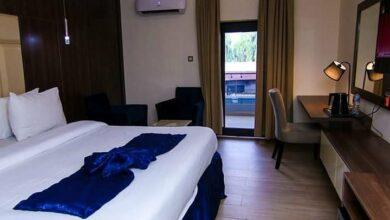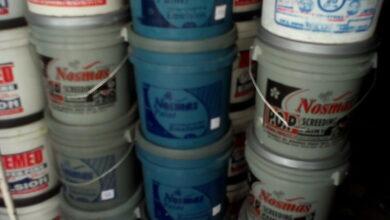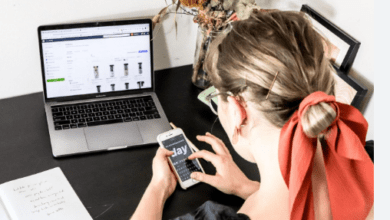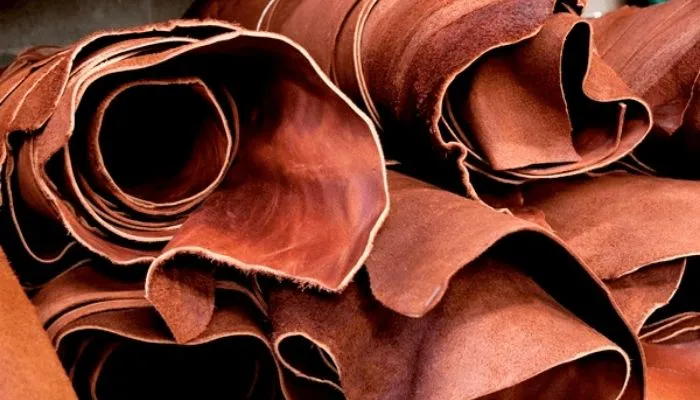
Top 14 Leather Markets in Nigeria
Top 15 Leather Markets in Nigeria –Nigeria has a long history of leather production and trade. Leather goods like bags, shoes, belts and other accessories have been an integral part of Nigerian culture for centuries. Even today, leather remains one of the most widely used and traded commodities in Nigeria. The country has numerous leather markets that cater to the huge demand for leather products. These markets are bustling hubs of leather trade and also serve as major tourist attractions. In this article, we will look at the top 15 leather markets in Nigeria, their key features and locations.Top 14 Leather Markets in Nigeria
The Top 14 Leather Markets in Nigeria Are:
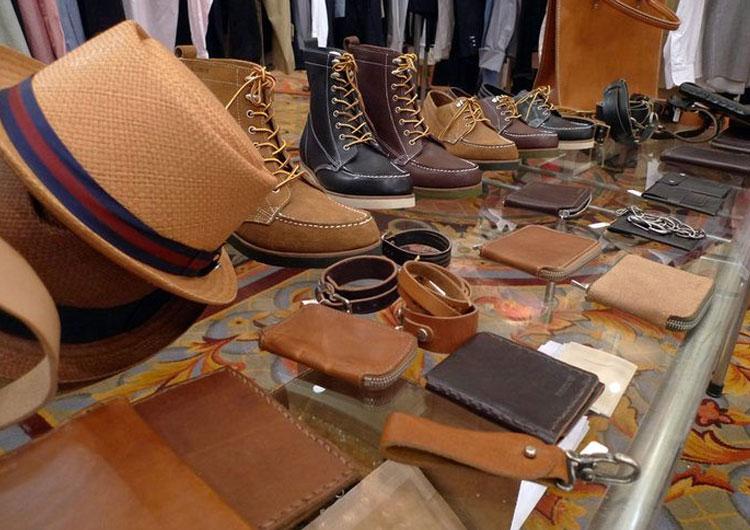
1. Kano Trade Fair Complex Leather Market, Kano
The Kano Trade Fair Complex Leather Market located in Kano is the largest leather market in Nigeria and one of the biggest in West Africa. This market is spread over a vast expanse and divided into multiple sections selling finished leather goods as well as raw hides and skins. A wide variety of products like bags, shoes, belts, wallets, jackets etc. can be found here crafted by skilled artisans. Key features of this market include:
👉 Relocate to Canada Today!
Live, Study and Work in Canada. No Payment is Required! Hurry Now click here to Apply >> Immigrate to Canada– Largest collection of locally crafted leather products in Nigeria
– Home to over 5000 stalls and shops dealing in leather
– Also has sections selling leather chemicals, equipment and accessories
– Attracts traders from all over West Africa
– Has air-conditioned shops, ATMs, restaurants, prayer rooms, restrooms etc.
– Bustling, crowded and can be difficult to navigate through
– Prices are competitive but quality may vary across shops
– Located in the heart of Kano city
Read Also: Top 15 Busiest Markets in Nigeria
2. Mokola Leather Market, Ibadan
Mokola Leather Market located in Ibadan, Oyo state is another large leather trading hub in Nigeria with roots tracing back to the 1950s. Some key features include:
– Over 1500 leather shops and stalls
– Specializes in finished leather goods – bags, shoes, belts etc.
– Also sells leather chemicals and machinery
– Shops range from small roadside stalls to larger stores
– Has restaurants and shopping complexes nearby
– Prices are reasonable due to stiff competition
– Close to Mokola bus stop and roundabout in Ibadan
– Crowded especially on weekends with difficult parking
3. Madaki Plaza Leather Market, Kano
Madaki Plaza in Kano is a well known indoor leather shopping complex housing over a hundred stores. Key features are:
– Located in the ancient dye pits area of Kano
– Housed in a two-storey enclosed shopping complex
– Specializes in retail of finished leather goods
– Shops showcase latest leather fashion collections
– Prices are fixed although higher than markets
– Well organized, tidy, air conditioned complex
– Majorly attracts middle and upper class shoppers
– Also has restaurants, prayer rooms and restrooms
4. Boulous Enterprises Shoe Market, Lagos
Situated in the Dosunmu area of Lagos, Boulous Market mainly deals in wholesale and retail of leather footwear. Some prominent features are:
– Extensive collection of locally made men’s and women’s shoes
– Wholesale shoes sold in dozens to retailers
– Retail prices are negotiable
– Smaller roadside stalls as well as enclosed shops
– Market street is crowded and filled with hawkers
– Popular among female shoppers for women’s shoes
– Also sells shoe fabrics, soles, accessories etc.
– Getting to the market may be tricky due to traffic
👉 Relocate to Canada Today!
Live, Study and Work in Canada. No Payment is Required! Hurry Now click here to Apply >> Immigrate to CanadaRead Also: 15 Most Famous Nigerian Markets
5. Shoe Plaza Ultramodern Market, Oshodi Lagos
As the name suggests, Shoe Plaza in Oshodi is a modern leather shoe market housing over 200 wholesale and retail shoe stores. Some key features are:
– Located near Oshodi bus stop along the Oshodi-Apapa expressway
– Built as a two-floor enclosed shopping complex
– Home to many leading shoe brands and manufacturers
– Wholesale shoes sold at factory prices in dozens
– Retail prices slightly higher but still reasonable
– Clean, organized atmosphere with CCTV and security
– Has parking space, eateries, restrooms etc.
– Caters to working class shoppers in Lagos
6. Ariaria International Market, Aba
Ariaria market in the commercial city of Aba has a dedicated leather section selling all kinds of leather goods. Some salient features are:
– Hundreds of open stalls arranged in rows
– Hot, crowded and crammed market layout
– Specializes in finished leather products
– Bags, shoes, belts, wallets etc. available at negotiable prices
– Variety of options to choose from
– Major wholesaling and retailing hub for leather
– Caters to traders from all of southern Nigeria
– Skilled leather artisans practice their craft here
– Also has fabric, clothing, jewelry and plastic sectionsJAMB portal
7. Onitsha Main Market
Onitsha Main Market located in Anambra state is renowned for its leather trading hub. Some key aspects are:
– Leather section has over 5000 market stalls
– Textile section also sells leather fabric rolls
– Finished leather goods section has bags, shoes etc.
– Highly skilled craftsmen stitch fine leatherwear
– Wholesale leather materials like hides, chemicals etc.
– Highly crowded maze-like market layout
– Products priced reasonably due to high competition
– Popular among traders from eastern Nigeria
– Also has fabric, electronics, plastic goods sectionsNYSC Portal
8. Yankari Leather Works Market, Kano
Yankari Leather Works Market located near Kofar Mata in Kano specializes in retail and wholesale of finished leather goods. Some prominent features are:
– Has over 150 enclosed permanent shops
– Shops stock high quality leather bags, shoes, belts etc.
– Items are classy and follow European designs
– Caters to high-end clientele and buyers
– Prices are fixed and higher than regular markets
– Well organized market along the sidewalk
– Specialists in screen printing on leather
– Variety of imported shoe and bag designer brands
– Also offer customized leather tailoring
Read Also: 15 Most Popular Leather Supplier in Nigeria
9. Kurmi Market, Kano
Kurmi Market in Kano has hundreds of open stalls and shops selling all kinds of artisanal leather articles. Distinctive features include:
– Locally crafted leather specialty items like poufs, pillows, lanterns etc.
– Stalls display dyed ostrich and snake skins
– Artisans skilled in intricate hand embroidery on leather
– Customized leather crafting to order is available
– Wholesale prices offered on bulk orders
– Items are unique and not found elsewhere
– Decorative leather wall hangings, furniture etc.
– Prices are higher than regular leather markets
– Caters to middle and upper class buyers
– Also sells other handicrafts like pottery, woodwork etc.Romantic love message
10. Balogun Market, Lagos
Within the expansive Balogun Market in Lagos lies a bustling leather section retailing quality leather goods. Some salient features are:
– Hundreds of shops and street side stalls
– Specializes in finished leather products
– Bags, shoes, wallets, jackets, men’s accessories etc.
– Wholesale leather materials also available
– Prices are reasonable due to high competition
– Located in the heart of Lagos Island
– Can be difficult to navigate through the cramped area
– Busy with throngs of shoppers especially on weekends
– Also has extensive fabric, jewelry, clothing sectionsInformation guide Nigeria
11. Kurmi Market, Maiduguri
Based in Borno state, Kurmi Market in Maiduguri has a thriving leather section stocking locally crafted goods. Key aspects are:
– Open stalls closely clustered together
– Items include handmade leather bags, poufs, pillows and jackets
– Also sells beaded leather slippers, shoes with elaborate designs
– Wholesale rawhide and camel hides available
– Unique specialized leather products not found elsewhere
– Prices are low and bargaining is common
– Caters to the local Borno customer base
– Small market but with skilled passionate craftsmen
– Other sections sell spices, fabrics, crockery etc.
12. Igbosere Leather Works, Lagos
Igbosere in Lagos hosts a cluster of leather manufacturers and retailers. Some unique features are:
– Located off Martins Street in Lagos
– Home to over 50 leather production factories
– Shops retail products from these factories like shoes, bags, belts etc.
– Reliable quality leather goods at wholesale factory prices
– Semi-finished products also available for traders
– Most shops open only on weekdays
– Specializes in men’s leather footwear
– Uncrowded organized layout but hard to locate
– Mainly caters to wholesale buyers rather than retail
Read Also: Top 15 Ship with Outstanding Sea-keeping Capabilities
13. Kanti Kwari Market, Kano
Kanti Kwari Market in Kano has a small but thriving leather section that is quite popular. Some key highlights are:
– Wholesale market located near Kurmi Market
– Dozens of stalls selling rawhide and camel hides
– Also has finished leather bags, purses and shoes
– Items cater to local low-income groups
– Prices are cheapest compared to other markets
– Quality may not match up to the products in regular leather markets
– Less crowded as caters to specific consumer segment
– Stalls owned by women leather traders
– Footwear here comprises basic sandals and slippersGood morning My Love Message
14. Tanke ‘Yan Kifi Leather Market, Kaduna
Tanke ‘Yan Kifi Leather Market located in Kaduna has a long history of leather trading. Some salient aspects are:
– Established in 1917 during colonial rule
– Has over 600 market shops and stalls
– Finished leather goods and raw hides wholesale
– Items manufactured locally in Kaduna
– Prices are reasonable and quality is reliable
– Mainly caters to the northern Nigerian market
– International traders also source stock from here
– Market layout is well organized into sections
– Footwear, bags and wallets are top selling items
Read Also: 15 Major Nigerian Cities with Historical Significance
Conclusion
The leather industry is a vital part of Nigeria’s economic and cultural heritage. The numerous leather trading hubs mentioned above give a glimpse into the diversity, scale and organization of this sector in Nigeria. While the larger markets like Kano and Lagos drive the organized leather retail and wholesale trade, smaller niche markets support skilled artisans and craftsmen. The bustling atmosphere, unique specialized products, skilled traders and competitive prices make these markets a must-visit shopping destination for locals and tourists alike. Leather is set to continue being one of Nigeria’s iconic homegrown crafts and its markets the trading lifeline.
Check JAMB Result
Check and Confirm: How much is Dollar to Naira






